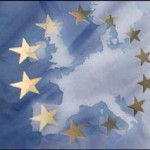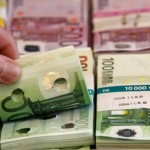Eurozone Growth Rebounds in July

The eurozone economy continues its slow recovery, but worries about the Ukraine crisis have begun to cloud the outlook, according to the results of a private-sector survey released on Thursday.
After slowing in June, eurozone economic growth rebounded in July, according to a survey of purchasing managers across the 18 nations that share the euro currency, conducted by Markit Economics, a data analysis firm.
Markit’s composite index rose to 54.0 from 52.8 in June, the highest level in three months, remaining comfortably above the 50.0 level that signals growth. Separate indexes measuring activity in services and manufacturing also rose.
The survey, one of the most closely watched “real-time” indicators of the eurozone economy, offered a reassuring note after Eurostat, the European Union statistical agency, reported last week that industrial production slipped in May, raising fears that the economic recovery in the currency bloc was losing steam.
Markit said that its July survey showed a rebound from June “after an unusually high number of holidays and a knock-on effect of mild winter weather had depressed activity in prior months.”
But it noted that growth in new orders appeared to have been weighed down by concerns about the standoff in eastern Ukraine, which has raised the possibility of tougher new sanctions on Russia, a major trade partner of the European Union, and thus potentially fewer sales of eurozone goods. The shooting down of a Malaysia Airlines flight over eastern Ukraine last week has only added to the uncertainty.
Major European stock indexes were mixed after the purchasing managers report and the euro was little changed against the dollar, trading at $1.3477 in the European morning.
“Business activity picked up again in July to suggest that the economy is growing at one of the strongest rates we have seen in the past three years,” Chris Williamson, Markit’s chief economist, said in a statement.
“However, even with the resumption of stronger growth, the survey data suggest the region’s G.D.P. is expanding at a modest pace of approximately 0.4 percent per quarter.”
That pace of growth in gross domestic product is not great enough to make a meaningful dent in the currency bloc’s unemployment rate, which has been hovering just below 12 percent for months.
“Part of the weakness of growth can be attributed to geopolitical concerns,” Mr. Williamson wrote, “and notably worries about the potential economic impact of the escalating situation in Ukraine. The likelihood is that companies will become increasingly reluctant to commit to making big decisions on purchases, investment and hiring in the face of such economic uncertainty, suggesting growth could weaken again.”
Consistent with recent reports, the survey of purchasing managers suggested the French economy is stagnating “at best,” while the German economy, Europe’s biggest, is improving.
And there were more signs of life in the so-called “peripheral” eurozone nations, where Markit said business activity appeared to be on the rise at the fastest pace since 2007.
Source: NYT





























